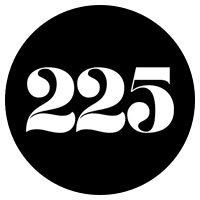When the hippies took over Prairieville
The front page of the Sunday Advocate on Sept 1, 1969, offered a pair of divergent accounts of the event. One spoke of the New Orleans Pop Festival as “overflowing with communes of brightly painted tents with their inhabitants coming from every state in the union to hear their rock idols and to join in a few days of peace and music.” In the adjacent column, readers learned that “five young psychiatrists who have set up shop in a tin shed on the grounds of the racetrack had seen about 30 whose trips were really bad.” The hippies had descended on Baton Rouge International Speedway in Prairieville for the incongruously titled New Orleans Pop Festival, held just two weeks after Woodstock inspired hope for—or incited fear of—youth culture, depending on where you stood.
The list of performers included luminaries Janis Joplin, Canned Heat, the Grateful Dead (listed as “Greatful Dead” in the advertisements), Santana, the Byrds, Tyrannosaurs Rex (before shortening to T-Rex), Chicago Transit Authority (before simply becoming Chicago), Iron Butterfly, Jefferson Airplane, and Country Joe & the Fish, as well as names that have slipped out of the pantheon, like It’s a Beautiful Day, Whizbang, and Spiral Staircase. Deacon John and the Electric Soul Train, Dr. John, and the Baton Rouge group Pot Likker also played.
Firsthand recollections of people who attended the festival are understandably hazy, despite the warning printed on posters for the festival:
|
|
Narcotics are prohibited by federal and state law. At least one person died at Woodstock this month from bad acid. Do not buy drugs at the festival. We are told that plainclothes detectives will be in the crowd. If you are smart you will avoid obvious consumption of drugs.
Police will remain outside the speedway unless our private guards are unable to keep order. It’s up to you.
Newspaper accounts spoke of scheduling problems and technical mishaps that frequently befell festivals of that time. “The plane that was to spread flowers over the milling throngs missed its target, the flowers dropping in huge globs but in the surrounding fields rather than floating gently down among the flower children,” said one story. “However, some were lucky enough to come up with a wilted rose or daisy.” An article detailing the aftermath on Sept 3 declared, “[Stage manager Joe] Kaplan said the hippies and other music lovers were being treated fairly by the police and area residents though it was obvious neither was enthusiastic about welcoming the new crowd to Prairieville.”
Charlie Daniels was producing the Youngbloods at the time, and he recorded the band’s festival performance for the group’s 1970 live album Rock Festival. Daniels’ own tune “Uneasy Rider” was inspired by the nervousness of some of the performers. Daniels once said all the hippies who’d just seen Easy Rider—in which the characters played by Dennis Hopper and Peter Fonda are killed in Louisiana—were afraid to stray too far from the pack or else get their hair assaulted by conservative shears.
Despite the incredible lineup, documentation of the New Orleans festival is scarce, possibly due to the cultural importance placed on Woodstock. One retailer of 1960s poster reproductions informed 225 it had stopped carrying the New Orleans Pop Festival posters out of lack of interest. A festival program was recently available for $650 at the psychedelic archive Wolfgang’s Vault.
Fortunately, one history-minded group, the Deadheads, saw fit to preserve at least part of this event for posterity. A soundboard recording from the Grateful Dead’s Sunday performance is available for streaming at Archive.org. Just search for “Grateful Dead Baton Rouge Speedway,” and you might catch a whiff of what it was like.
|
|
|

